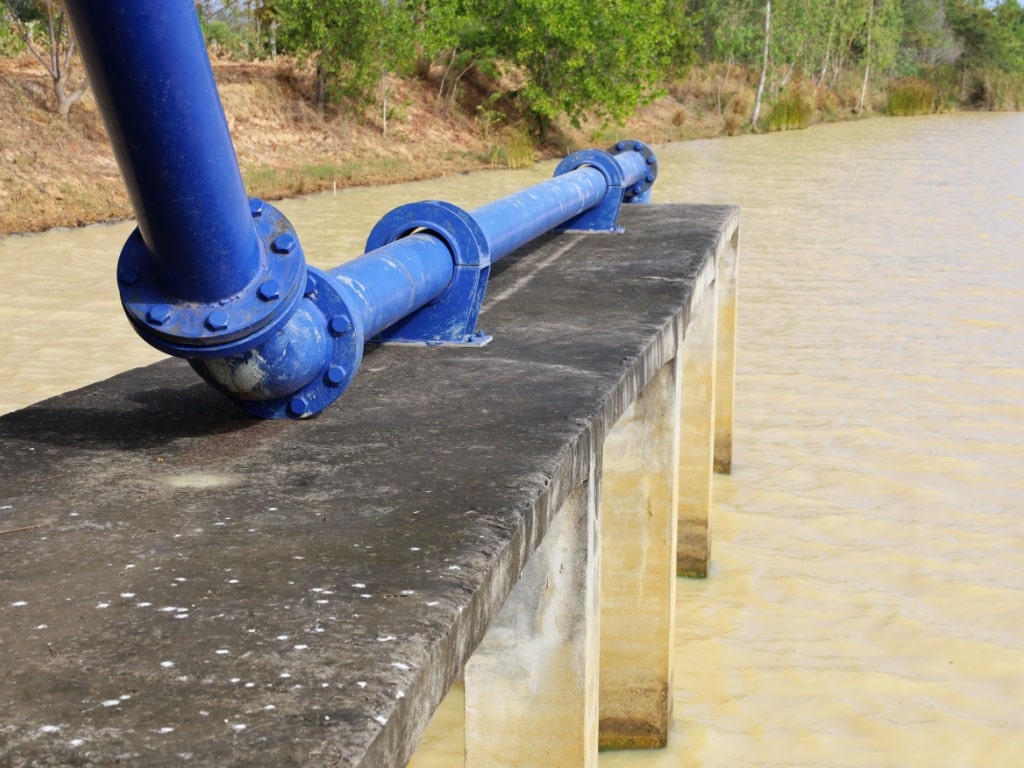Since 1 April 2024, 14 of the 45 councils in the wilaya of Bouira in Algeria have had a better supply of drinking water. This is thanks to a new drinking water supply (AEP), inaugurated by the Algerian Minister for Hydraulics, Taha Darbal.
The AEP pumps raw water from the Tilesdit dam, located in the central northern part of the North African country, 18km east of Bouira, with an estimated storage capacity of 167 million m3. The raw water passes through a 7.8 km long network to an old rehabilitated drinking water treatment plant, with a capacity of between 8,000 and 10,000 m3 per day. The drinking water then flows along pipes, including those laid in the councils of El Adjiba, Ahnif, Ath Mansour, M’Chedallah and Chorfa, to supply the population.
Strengthening people’s water resilience
“This project supports and improves access to drinking water, and limits the fluctuations already recorded, especially with the relative increase in the slope of the Tilesdit dam, due to recent rainfall”, declared Taha Darbal on 1 April, during the inauguration of the drinking water supply. The people of Bouira have had to contend with chronic water shortages for a number of years, caused in particular by drought.
Read also –
The water resilience project, which is now coming to an end in Bouira, began in November 2023. Algeaux, which specialises in studies and works in the field of hydraulics, built this system to interconnect Bouira with the Tilesdit dam, which was commissioned in 2005. The subsidiary of Algérienne des Eaux (ADE) received 450 million Algerian dinars (around €3.1 million) from the Algerian government.
Inès Magoum
